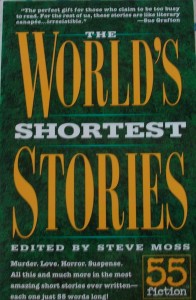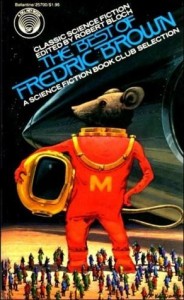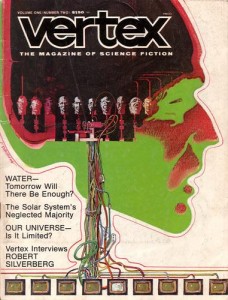 In an earlier post, I shared my thoughts on “Bedtime Story” by Jeffrey Whitmore – a short-short story that weighs in at a flyweight 55 words. Since then, I have given flash fiction presentations at PAISTA and in my advanced writing class at Sewickley Academy – both of which have given me the opportunity to field a variety of questions about short-short fiction.
In an earlier post, I shared my thoughts on “Bedtime Story” by Jeffrey Whitmore – a short-short story that weighs in at a flyweight 55 words. Since then, I have given flash fiction presentations at PAISTA and in my advanced writing class at Sewickley Academy – both of which have given me the opportunity to field a variety of questions about short-short fiction.
One question that often comes up at such presentations is: How short is too short?
The question, of course, depends on one’s definition of flash fiction. If one accepts the premise that a short-short story should include basic narrative elements (character, setting, conflict, and resolution), then Whitmore’s 55 word tale is probably going to represent the bare minimum.
Nevertheless, for those willing to stretch the definition of story, here are five ultra-short works that might qualify as the shortest tales of all time:
 “Gasp” by Michael A. Arnzen (26 words)
“Gasp” by Michael A. Arnzen (26 words)
He posited that a person could drown in air. I told him to stop being contradictory. He raised a finger. Inhaled to reply. And never stopped.
The story first appeared in FlashShot, November 2002, and has been reprinted in Arnzen’s collection 100 Jolts (Raw Dog Screaming Press). As with much of Arnzen’s work, it’s darkly ironic and ultra-short. It might not qualify as a story under my definition, but it’s pretty cool nevertheless, and the book is highly recommended.
 “Knock” by Frederic Brown (17 words)
“Knock” by Frederic Brown (17 words)
The last man on Earth sat alone in a room. There was a knock on the door. . .
This is actually a story within a story, a two-sentence vignette that Brown uses to introduce a conventional narrative that continues for another 4,000 words. The lines seem to be a reworking of an earlier short-short by Thomas Bailey Aldrich, which reads: Imagine all human beings swept off the face of the earth, excepting one man. Imagine this man in some vast city, New York or London. Imagine him on the third or fourth day of his solitude sitting in a house and hearing a ring at the door-bell! Interestingly, Brown’s story “Imagine” (another contender for one of the shortest stories of all time) also seems to draw inspiration from Aldrich.
 “Baby Shoes” by Ernest Hemingway
“Baby Shoes” by Ernest Hemingway
(6 words)
For sale. Baby shoes. Never worn.
Again, whether it really qualifies as a story depends on how far you are willing to stretch the definition. Nevertheless, those six words certainly pack a punch. Interestingly, the general consensus is that the vignette probably was not penned by Hemingway. There’s a nice discussion of the story’s authorship at Snopes.com.
 “Cosmic Report Card: Earth” by Forrest J. Ackerman
“Cosmic Report Card: Earth” by Forrest J. Ackerman
(1 letter)
F
Ackerman sold the story to the SF magazine Vertex for $100.00. It appeared in the June 1973 issue and has since been translated into a half-dozen languages.
Quite a stunt.
Of course, it’s the title that makes it.
 What Every Man Thinks About Apart from Sex by Sheridan Simove (0 words)
What Every Man Thinks About Apart from Sex by Sheridan Simove (0 words)
This one really stretches the definition. It’s a book consisting of 196 blank pages, and I’m sure there are people who would not consider it fiction.
Take a look. Judge for yourself.
Coming soon, I hope to conclude this month’s discussion of flash fiction by responding to some questions submitted by the good folks who attended my PAISTA presentation last week, but first I plan to offer some reflections on the Raw Dog Screaming book event that I previewed in my October 19 post. Look for that soon.
Until then, let me know what ultra-short story tops your list of the shortest tales of all time. Use the media buttons for FB, Twitter, or Email in the upper right corner of this page . . . or (better yet) post a comment below.
Scop on !
Credits:
Simulated manuscript of “Baby Shoes” is from TheDestinyManifest.com May 23, 2013.
“Cosmic Report Card: Earth” copyright (c) 1973 by Mankind Publishing Co, Inc.
“Gasp” copyright (c) 2002 by Michael A. Arnzen.
“Knock” copyright 1948 by Standard Magazines, Inc.
Photos of What Everyman Thinks are from Tengri News June 03, 2011.


Leave a Reply